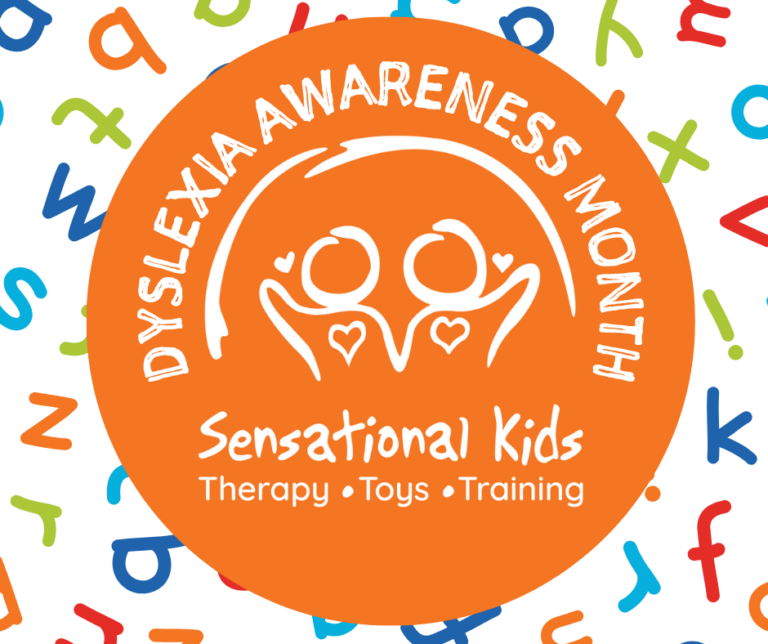October marks Dyslexia Awareness Month, an important time to shed light on this common learning difference and support those who experience it. At Sensational Kids, we’re committed to helping children overcome challenges like dyslexia so they can reach their full potential. In this blog post, we’ll explore what dyslexia is, share some key facts, and discuss ways to support children and young people with this condition.
What is Dyslexia?
Dyslexia is a specific learning difficulty that affects reading, writing, and spelling. Despite it being lifelong, it does not impact intelligence. People with dyslexia often have trouble processing language, which can make tasks like recognising letters, decoding words, or remembering spellings difficult. Dyslexia can also affect working memory and organisational skills, which may influence learning and day-to-day tasks.
The exact cause of dyslexia isn’t fully understood, but research shows that it often runs in families, pointing to genetic factors. Dyslexia is not linked to a lack of effort or poor teaching. It is a neurological difference that affects how the brain processes language.
Some Facts About Dyslexia
- Prevalence: Dyslexia affects roughly 10% of the population, which means in any classroom, it’s likely that several children may have dyslexia.
- Early Signs: Dyslexia often becomes apparent when children start school. Signs include difficulty learning letter names and sounds, trouble recognising common words, and a reluctance to read aloud.
- Strengths:While dyslexia presents challenges, many people with dyslexia show strengths in creative thinking, problem-solving, and out-of-the-box approaches. Some notable dyslexic individuals include Richard Branson and Agatha Christie.
- Variability: Dyslexia can vary in severity. Some people experience mild difficulties, while others may find reading and writing tasks very challenging.
- Assistive Technology: Technology can play a huge role in supporting children with dyslexia. Tools like speech-to-text software, audiobooks, and phonics-based learning apps can enhance learning experiences.
- Early Intervention: The sooner dyslexia is identified, the better the outcome. Early intervention strategies like multisensory learning approaches can make a significant difference in helping children develop reading and writing skills.
How to Support Children with Dyslexia
At Sensational Kids, we believe that with the right support, children with dyslexia can thrive. Here are some ways to help:
- Tailored Learning: Understanding a child’s specific needs and adapting teaching methods is crucial. Multisensory learning—using sight, sound, and touch—can help children engage with language in more meaningful ways.
- Emotional Support: Children with dyslexia may feel frustrated or anxious about learning tasks. Encouragement, patience, and celebrating small achievements can help build their confidence.
- Access to Tools: As mentioned, assistive technology and tools like reading software or apps can make learning more accessible for children with dyslexia.
- Collaboration with Schools: Teachers and parents working together ensures consistent support. Schools can make simple adjustments such as providing extra time for tasks, using large print, or offering alternative ways to complete assignments.
Final Thoughts
Dyslexia Awareness Month is a chance to raise understanding about dyslexia, but also to celebrate the strengths and talents of those who live with it. Every child deserves the opportunity to succeed, and at Sensational Kids, we are here to provide the resources, support, and encouragement that can help children with dyslexia reach their potential.
This October, let’s spread awareness, break down misconceptions, and ensure every child feels supported in their learning journey.
If you’d like to learn more about how we can help, or if you’d like to support Sensational Kids consider making a donation. Together, we can make a difference in the lives of children with dyslexia.


